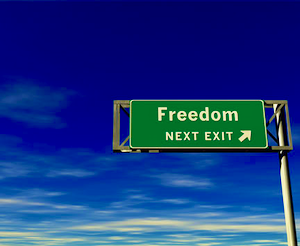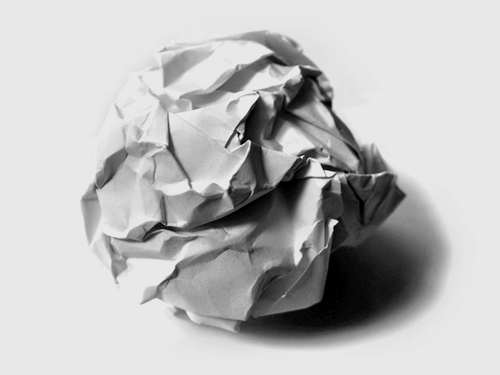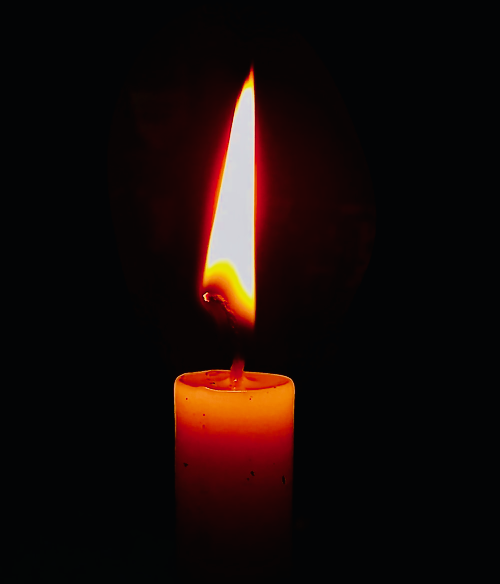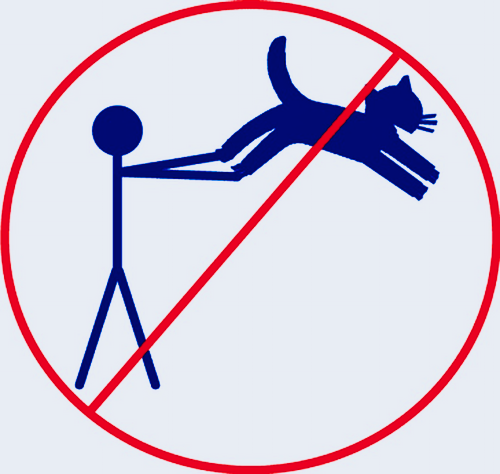I recently read an article about Chad Carswell, a 38yo man in North Carolina who’s awaiting a kidney transplant. While donor organs have been found that could save Carswell’s life, hospitals are presently requiring all transplant patients be vaccinated against Covid-19. The reasons for this are quite simple: unvaccinated transplant patients have a significantly lesser likelihood of surviving a transplant, there are a finite number of donor organs around, and many hospitals are unwilling to commit already strained resources upon a surgery with a high likelihood of failure. The reason Carswell is in the news is because he refuses to get vaccinated, and thus will be prevented from receiving a transplant. In his words, “I was born free and I’ll die free.”
This has stuck with me since I first read the headline the other day. My immediate reaction was, and has remained: I think your baseline assumptions are inaccurate, Chad. Specifically the part about being born free. I won’t quibble with the dying, though I don’t see the purpose of modifying the act with the word “free.” Death is, free or otherwise. But I’m getting ahead of myself.
As I said, I’ve been thinking about this now for several days and I can’t conceive what it might mean to have been “born free.” On a very basic and very obvious level, the entire concept is patently un-true — all of us are born locked in limitations beyond comprehension — time, genetics, history, culture, etc,. to say nothing about the comminglings of each. Further, with reference to something that should be terribly obvious — we’re all going to die. None of us is free from that reality, a fact that makes most “born free” arguments significantly less convincing.
Because this is America, 2022, what Chad’s clearly referring to is being free-from government oversight, specifically the requirement to get a Covid vaccine. While I don’t agree with his thinking, this free-from-ness is an important aspect of freedom that’s at once highly understandable and achingly absurd. Understandable, because like Chad I also hate being told what to do; Absurd because the government tells both me and Chad all sorts of things that we regularly obey — drive 55mph on this road, pay 21% of your income in taxes, don’t kill your neighbors.
(I’m aware that there’s arguably a categorical difference between obeying highway speeds and having a foreign substance injected into your person — but that’s not an argument I’m interested in having, largely because I’m already convinced I’ll win. To wit: Chad’s a double amputee with Type II diabetes who’s already contracted Covid twice — his system has been flooded with foreign substances, and their presence is inarguably a huge reason he’s still alive today.)
While this idea of freedom-from is important, it’s also pretty weak sauce. It’s like wiping your glasses clean as you prepare to summit a mountain — the act can be helpful if your eyesight is weak, but it doesn’t do diddly to get you up the mountain. A far more interesting component of freedom is to think about what it’s For. That is — you can be free-from something, such as government oversight, but once you’re free-from that thing — then what? To what ends and purposes do you put your freedom to use?
FROM : FOR
To risk an understatement, I haven’t seen or heard much of substance on this topic from conservatives in a long time. For all their freedom talk — which is more often yelling than talking, and of the most high-pitched and antic tone — it’s only freedom-from that they emphasize. In other words: Okay, you’re free from being vaccinated, but then what?
(I’ll slightly modify the above, for conservatives do want corporations to be free FOR doing whatever the hell they want to do, at whatever the costs. If you’re foolish enough to argue that corporations are corporations and not human-people, well, the Supreme Court has some ‘splainin’ for you.)
It’s also curious to note that most of the right’s freedom chatter is essentially focused upon civil liberties, with a heavy degradation souring the word “civil.” The struggles for freedom in many countries have often revolved around determining who governs whom. Think back to a founding motto of our country — No taxation without representation. While this was far from the idealized concept certain conservatives imply, it was still an admirable goal whose aim was to ensure that we the people had chosen our own representatives. (Again, far loftier than reality, as both ‘we’ and ‘our’ were awfully cliquish and exclusionary buckets)
What twists this even more cattywampus is the stated goal of many conservatives today — the overt non-representation of leadership (see: January 6, 2020) and the steady reduction of access to voting. We see many conservatives seeking to deify founders who fought to establish representational freedom while working to limit that very representational freedom, all while smearing the entire duplicitous campaign in some spit-slipping blather about freedom.
All of that makes about as much sense as swinging a cat by its tail to determine which direction is north. Cat lovers may struggle with that image: if it helps, know that we’ll return to it below, and exposure can often reduce inflammation. Speaking of returning, let’s get back to Chad, who’s appealing to his freedom from being required to get vaccinated. While taking-up that freedom excludes him from government oversight, it also excludes him from receiving a transplant, and soon he will die.
In a move that is both highly revelatory and tremendously stupid, it appears that the only thing his freedom is for is his death. The really strange thing about all of this is that you don’t have to be free in order to die. Death is, and it doesn’t seem to give a toot about anyone’s perspectives on freedom.
Here we have a man who, rather than sacrifice his concept of freedom — a concept that will not impact the reality of his dying in any way — instead insists upon his freedom, the end result of which will be that he will soon be free to die. If you’re confused — turned around, pick up the nearest kitty and start swinging.
An obvious question might be: Is it preferable to be alive or free?, assuming the latter concept has any actual meaning vis-a-vis the reality of death.
This is the point in every essay I both despise and live for, because it’s the point where what I was originally writing began to unravel and spill apart, like a wad of scrap paper bundled up and tossed into the trash can. I realized I was beginning to ask: Is living worth it? The next thing I realized was that no one had asked me that question; instead, I was imposing it on Chad Carswell, while having already determined my response to the question that — it’s once again worth repeating — no one had asked me.
It’s useful to realize the point at which your writing has become total bullshit.
This frustrated me on many levels. I don’t like writing bullshit, and — more importantly — I’d written some really solid, stinging rebukes of old Chad, rebukes that had made me feel clever and witty and frankly self-righteous. And what was I feeling self-righteous about? The facts that I’ve been vaccinated twice and boosted once? Those are smart choices, and I absolutely think Carswell’s decision is the opposite, but do I need that comparison in order to feel good about my-self?
The short answer is No — today I do not. Perhaps I was feeling self-righteous about the fact that today, as I write this, I would answer the question Is living worth it? in the affirmative while Chad seems to be saying, No. That’s a stupid thing to be proud of in itself and it’s also a terrible comparison; the whole thought is made even stupider by the reality that my reply is tentative: tomorrow is always unknown.
I kept thinking. Despite the fact that many, many people have long insisted otherwise (Camus called suicide the fundamental question of philosophy), the very question of whether or not life is worth living started to feel stupid, in the same way that it increasingly feels stupid to ask: What does life mean?
Maybe stupid is the wrong word. How about ill-suited. Wrong. Borderline-pointless. Irrelevant. Like cleaning my glasses while not taking a step up the mountain. Or, to spin things around on themselves, like trying to find a direction on the compass by swinging a cat in circles.
Essays are trials, attempts, stabs-at-understanding, and I’d failed. It comes with the territory. I did the only thing you can do in a situation like this — I kept writing. I’ll admit that much of what follows is conjecture, ideas and notions I’ve created in my own head — which, I’m aware, is what landed me in the weeds in the first place. Still, what else is there to do but keep writing?
Remember: Carswell is a double amputee with Type II diabetes. He’s had Covid twice, has stage 4 kidney disease, and has been on dialysis for the past two years. He’s young — only 38 — an age when many are building families and careers, and here he is with only 4% of his kidneys functioning. In short: he’s had a rough go. With all of this in mind I started to wonder — maybe he’s had enough. Perhaps he’s slowly answering the central question of philosophy, the one I above called stupid and wrong, with a hesitating but increasingly certain: Yes.
Here I want to be clear — I don’t retract a single word I’ve written: all this freedom-from stuff that Chad and others mouth is weak sauce. It’s said in bad faith, it’s a cover-up for reducing the freedoms of others, and worst of all it’s an excuse to avoid being a responsible human being who chooses to be FOR something in this life.
And still — I imagine when my end is in sight I could be scrambling for some ways to make sense of things, too. Because that’s what I think all this is for old Chad. He must know not-getting-vaccinated is moronic — it fails any reasonable or rational test — but that may not be the point. Instead, I think this freedom stuff has become a light that can be shined into the oncoming darkness. And it doesn’t simply illuminate his own obscurities, but like any lamp in the dark it draws others toward its light. Like-minded folks are gathering around Chad, sharing his light, seeing and being seen in the shadows beside him. And even if it’s all founded on bullshit — even if all the freedom talk is just utter nonsense, which I truly think it is — isn’t having a light to counter the darkness and others by your side what we all want when the time comes?
I said I wouldn’t retract anything I’d already written: above I wrote: “Death is, and it doesn’t seem to give a toot about anyone’s perspectives on freedom.” I’ll update that now: Death is, and doesn’t seem to give a toot if anything you believe or disbelieve is true. Death also doesn’t seem concerned with whether or not you truly believe the things you claim to believe. This is important, for I haven’t a clue how sincerely Chad believes all this freedom stuff, in exactly the same way that I couldn’t tell you how sincerely I’ll believe the content of this essay once I’m finished writing it.
A key point here is this: what lights do any of us have to help us see into the dark of death that aren’t founded on bullshit, at least in part? There are systems and ideas and beliefs that seem true to varying degrees, and their truths vary over the duration of our lives. But nobody knows which light is the true light. And the truth is that it doesn’t seem to matter whether or not the light is based in truth or even if it’s believed truly. Instead, what’s important is that it’s light. Feeble, baseless, self-refracting: light offsets dark, even if the light is artificial.
I want to be very clear here: I don’t seek to believe in false lights and I don’t encourage it in others. This entire essay has been a re-write in pursuit of more truth and light. I’m simply suggesting that the category of truth may be irrelevant here, or at least less-relevant than other concerns. I realize this may be conceptually unappealing to some; I don’t think that changes much.
In an effort at parity, on certain days materialism makes the most sense to me: I die, consciousness as I’ve experienced it ends, and my body decomposes until eventually I’m disseminated across the Universe, my-self having been reduced to motes of dust refracted in the slant of the evening light after you fluff a pillow. As I write this, right now, I believe that’s true. But who knows what tomorrow will bring?
I’d like to be clear — that thought terrifies me. Not simply because of the ending it implies, but because any thought of an ending terrifies me. Further, it saddens me: what a dulling, uninspired and rather boring end to the story. If life were a book you’d throw it away in disgust — no one would read an adventure story whose plot, when it arrives at the truly interesting climax, punts: And then they all died.
These thoughts paralyze. I move as slowly as if I’d had my feet sunk in a frozen river while Chad toots his horn about freedom. It’s difficult to see much of a difference between the two. In a certain sense: light is light is light. Further, the real point of the image I’ve returned to throughout this essay is that we’re the cats swung round in the bag.
My great-grandmother used to do this to her cat: she’d persuade the cat to get into a large paper bag, like the kind you’d get from the grocery store. Then she’d roll down the bag’s sides, pick up the bag with the cat inside it, and swing it in circles overhead like a ferris wheel.
She swore the cat loved it.





Jesus is the true light in this dark world and He loves you!!! Trust in Him and He will take your fear away for fear comes from Satan (the prince of darkness). Trust in Jesus and He will set you free. Jesus is the only Freedom one can experience.